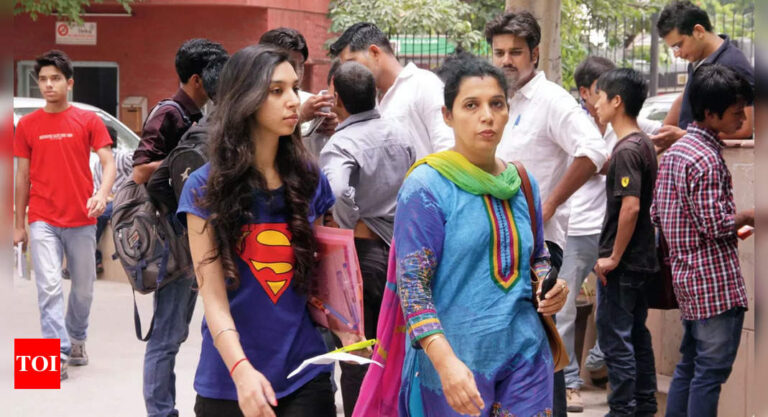Chennai-born engineer Shriram Krishnan, who was appointed senior policy advisor for AI in the White House Office of Science and Technology Policy, supports U.S. immigration policy, including eliminating country caps (but not all caps). This sparked a heated debate. green card. The controversy highlights growing rifts within conservative circles, as MAGA anti-immigrant advocates and tech industry figures like David Sachs clash over issues such as H-1B visas and green card reform. . At the heart of the debate lie competing visions of what best serves America’s economic and social interests. The choice is to prioritize native-born workers or embrace skilled immigrants to drive innovation.
Contextualize the discussion
The H-1B visa program, the U.S. tech industry’s lifeline for accessing top global talent, has become a lightning rod in the immigration debate. Critics rallying under the banner of “America First” accuse it of stealing jobs from American workers and a way to suppress wages. But proponents argue that it is the backbone of innovation, closing the skills gap and boosting economic growth.
The latest battle centers on efforts to eliminate country caps on employment-based green cards, a rule that would distribute them equally to all countries regardless of demand. This outdated system forces skilled Indian professionals to endure over a decade of backlogs while applicants from less competitive countries get through, highlighting the glaring inequities within the system. is highlighted. The current system’s 7% per-country cap on employment-based green cards disproportionately impacts Indian professionals. Despite Indian applicants making up a significant proportion of H-1B holders, they face long backlogs due to high demand. Reform proponents argue that removing these caps would:
• Ensure a fairer distribution based on ability.
• Reduce the uncertainty that prevents the world’s best talent from making long-term commitments to the United States.
Critics argue that easing these restrictions could flood the labor market, suppress wages and put American workers at a disadvantage.
players and their positions
Technology industry leaders advocate lifting national green card caps to emphasize global competitiveness and economic growth, retain skilled workers and drive innovation I’m doing it. MAGA’s critics, by contrast, argue that these reforms weaken American workers and reflect deep ideological rifts to prioritize local jobs and resist the influence of globalism. It has been accused of promoting strict immigration controls. The debate ultimately boils down to the competing priorities of economic innovation versus labor protectionism and meritocracy versus nationalism.
technology leader
Celebrities such as Sriram Krishnan, David Sachs and Elon Musk have been at the forefront of advocating for reforms such as eliminating country-specific caps while keeping overall green card caps in place. They argue that this targeted reform is performance-based and designed to retain the skilled workforce essential to driving innovation in critical areas such as STEM and AI. Their position emphasizes that the technology industry relies on a global talent pool and seeks a more efficient and fair path to permanent residence for highly skilled professionals. .
By viewing immigration as an economic necessity, technology company leaders are highlighting the risk of losing top talent to competing countries with more welcoming policies. For them, reforming outdated systems is not just about equity, but also about ensuring U.S. leadership in emerging technologies and ensuring sustained economic growth.
MAGA anti-immigration advocate
Meanwhile, critics like Laura Loomer vehemently oppose these reforms, branding them a betrayal of America First policies. They argue that expanding opportunities for foreign workers will hurt American graduates and create unnecessary competition in an already tense job market. The organization advocates for strict immigration controls, emphasizes independence, and prioritizes employment opportunities for American-born people.
For this faction, immigration policies favoring skilled foreign workers are seen as a threat to domestic job and wage security rather than a boon to innovation. Their stance reflects widespread resistance to globalism and a desire to reaffirm national sovereignty in shaping economic policy.
A threat to domestic jobs? Tech founders’ views on H-1B visas
Apoorva Govind, founder of BesteverAI, shared her thoughts on X (formerly Twitter), highlighting her personal experience with the H-1B visa system. She said: “I’ve been on both sides of the H1B visa. By the way, I graduated with a master’s degree from Carnegie Mellon University, interned at Nvidia, worked at Apple, then worked at Uber, and eventually started my own… Established a company.
Govind argued that the H-1B program is essential to filling gaps in the U.S. technology industry. She pointed out that the U.S. public education system does not produce enough homegrown talent in fields such as computer science. She explained: “H1B fills a huge hole left in the tech industry by America’s poor public education system. There is a shortage.”
He added that hiring H-1B workers is expensive and complicated for employers, with significant legal, administrative and immigration costs. To improve the system, Mr. Govind suggested that “lotteries should be abolished, Indian service agencies should be denied gaming of the system, and a points system should be introduced like the rest of the world.” Set a high bar to qualify as a skilled immigrant. ”
She also called for deeper reflection on the flaws in the American public education system, saying, “Maybe banning algebra in sixth grade was not such a wise choice.”
America’s Immigration War: The Endless Debate
The fight over skilled immigration exposes the raw clash of priorities at the heart of American identity. Proponents argue that streamlining the stay of top talent will foster innovation, entrepreneurship and economic growth, ensuring the country’s global dominance in technology and STEM. But the fierce opposition of nationalist factions reveals deeper anxieties: fears of globalization, cultural erosion, and growing inequality. These voices frame immigration reform as a betrayal of American workers, arguing that it will drive out local talent and drive down wages. The debate highlighted rifts within the conservative coalition, pitting economic realists championing progress and global competitiveness against populist nationalists rallying behind “America First.” As the stakes rise, this battle highlights a crucial issue. The question is: Should the United States join the global race for innovation, or should it retreat into protectionist policies at the expense of progress?



